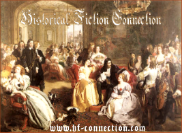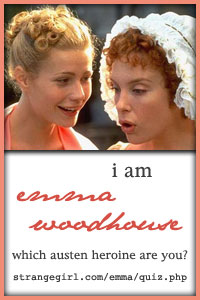4 roses
 Readers of my blog are well aware of my strong Richardian sympathies but when it is well written, even I can enjoy a book about the man who murdered Richard and began the Tudor dynasty. In this novel (originally published with the title Uneasy Lies the Head) Jean Plaidy has penned a beautifully written story about the parents of Henry VIII - Henry VII and Elizabeth of York. Both titles the book has carried are quite apt as Henry felt he had to struggle his entire 23 year reign to keep his throne. Though don't be fooled by the inclusion of Elizabeth of York in the title - she rarely appears - and it really can not be classified as a love story (as the back cover boasts).
Readers of my blog are well aware of my strong Richardian sympathies but when it is well written, even I can enjoy a book about the man who murdered Richard and began the Tudor dynasty. In this novel (originally published with the title Uneasy Lies the Head) Jean Plaidy has penned a beautifully written story about the parents of Henry VIII - Henry VII and Elizabeth of York. Both titles the book has carried are quite apt as Henry felt he had to struggle his entire 23 year reign to keep his throne. Though don't be fooled by the inclusion of Elizabeth of York in the title - she rarely appears - and it really can not be classified as a love story (as the back cover boasts).The story begins mere months after Henry VII's victory at Bosworth in 1485 and ends with his death in 1509. I am grateful that Plaidy chose not to show the actual battle, as it is always difficult for me to read, but rather begins with Elizabeth of York in labor with her first child, Prince Arthur. We are carried through Henry VII's reign - the birth of their many children, his struggle against pretenders and to feel secure on his throne, and the tricky politics of the era which deal with everything from taxes to the marriages of children.
Plaidy did a superb job with this novel - the story is well written and flows at a good pace, it is an easy but entertaining (and informative) read, she doesn't bog the reader down with too many details, and her characters are nicely developed. The narration switches between various people through out though it does mainly stick with Henry VII. Surprisingly, no real villains appear in this novel. Plaidy manages to portray everyone as quite human, each with their own faults, but no one that a reader could classify as a villain or evil. Even I couldn't hate Henry VII. He felt very strongly that he had done what was best for the country by bringing peace and uniting the two royal houses. He was constantly disturbed that even though he had ended the wars and made the country prosperous that people still didn't like him and would rise up against him. I could almost feel sorry for him. The only character I could not like in the book (though I didn't hate him) was Prince Henry (soon to be Henry VIII). He was the most arrogant, selfish, self-absorbed, and pompous little child I've ever read about! It does seem a bit far fetched to me that a child of three could be wishing he had been the elder brother so that he could be King of England one day (and those thoughts occasionally slip dangerously close to wishing Arthur dead). I truly wanted to slap some of the arrogance out of him. Other than the annoying little Prince I couldn't really find fault with any of the other characters. I was surprised at how little Henry VII's mother appeared in the book, as she was quite a factor during his reign, and I was disappointed in how little Elizabeth of York appeared. The few times we really see her she almost comes across as an after thought and of no importance beyond being a walking uterus. Perhaps that was Plaidy's way of showing how Henry felt about the importance of the House of York. Beyond characters, I did like the "mystery" Plaidy weaves with the fate of the Princes in the Tower (but don't worry, you will see her opinion on their situation). Some may feel that events during Henry's reign were glossed over and not given enough attention but I think what the author includes is enough; enough fact to get the point across clearly and enough fiction to make it interesting. Plaidy's true genius in my opinion is how effortlessly she weaves fiction with historical fact, making it interesting and informative but not throwing in so much detail that the reader will find it tedious.
I would highly recommend this novel to any reader. It is an easy read. Tudor and Plaidy fans will enjoy it and readers interested in discovering more about how the Tudor dynasty began will find it informative. This is the first of her novels on the Tudors and, in my opinion, some of her best writing.























I read this a few years ago and thought it was just OK and found it hard to get into in the beginning. I'm glad you enjoyed it though!
ReplyDeleteThisa is a great read.
ReplyDelete